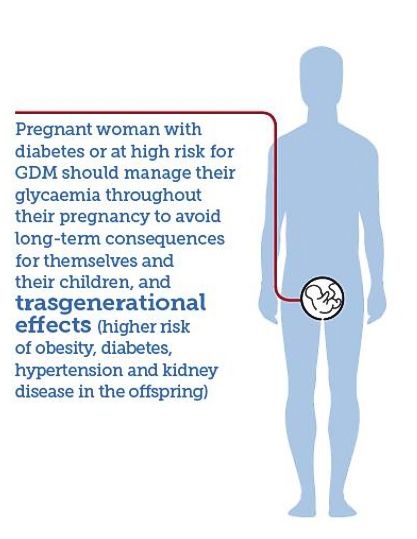What is Gestational Diabetes?
As someone who hopes to have a family one day, I find it incredibly important to learn about the various health aspects that can affect both me and my loved ones. One topic that I recently came across during my research is gestational diabetes. This condition has caught my attention as it can have significant impacts on the health of both the mother and the baby. In this blog post, I aim to share my findings on gestational diabetes and emphasize the importance of being informed about this condition when planning a family.
Gestational diabetes is a type of diabetes that affects pregnant women. Although it may happen at any time during pregnancy, it usually occurs in the second or third trimester. It is characterized by high blood sugar levels that can harm both the mother and the developing fetus. Though it may sound overwhelming, understanding gestational diabetes and knowing how to manage it can help ensure a healthy pregnancy for both mother and child.
Gestational diabetes often doesn’t present with any noticeable symptoms, which is why routine screening during pregnancy is essential. The diagnosis is usually made during a standard glucose tolerance test between the 24th and 28th week of pregnancy. However, some women may develop symptoms including as increased thirst, frequent urination, fatigue, and blurred vision.
Consequences of Gestational Diabetes

Effects on the mother
- Increased risk of high blood pressure and preeclampsia during pregnancy
- Higher risk of developing type 2 diabetes in the future
- Increased risk of needing a cesarean section due to a larger baby
Effects on the baby
- Macrosomia (large birth weight): Babies born to mothers with gestational diabetes are at a higher risk of being larger than average, which can lead to complications during delivery
- Low blood sugar (hypoglycemia): These babies may have low blood sugar levels shortly after birth, which can cause seizures if not treated promptly
- Respiratory distress syndrome: Babies may have difficulty breathing due to immature lungs
- Increased risk of obesity and type 2 diabetes later in life
Individuals at higher risk for gestational diabetes:
- Overweight or obese
- Physically inactive
- Prediabetes
- Previous gestational diabetes
- Polycystic ovary syndrome
- Immediate family member with diabetes
- Previously delivered baby weighing 4.5 kg or more
Lastly, it’s important to remember that it’s a temporary situation that usually goes away after the baby is born. But if it isn’t handled right, it can hurt both the mother and the baby in the long run. If the problem is taken care of well during pregnancy, these risks are much less likely to happen. Moms with gestational diabetes can make sure that their children will have a better future by working closely with their doctors and making the right changes to their lifestyle.
More knowledge about diabetes?

Sources
CDC. (2022, December ). Gestational Diabetes. Retrieved from www.cdc.gov: https://www.cdc.gov/diabetes/basics/gestational.html
IDF. (2020, July). Care & Prevention: Gestational diabetes. Retrieved from idf.org: https://idf.org/our-activities/care-prevention/gdm.html
Johns Hopkins Medicine. (2023, April). Polycystic Ovary Syndrome (PCOS). Retrieved from www.hopkinsmedicine.org: https://www.hopkinsmedicine.org/health/conditions-and-diseases/polycystic-ovary-syndrome-pcos#:~:text=PCOS%20is%20a%20very%20common,%2C%20infertility%2C%20and%20weight%20gain.
March of Dimes. (2023, January ). Preeclampsia. Retrieved from www.marchofdimes.org: https://www.marchofdimes.org/find-support/topics/pregnancy/preeclampsia#:~:text=Preeclampsia%20is%20a%20serious%20condition,liver%2C%20to%20not%20work%20normally.
Mayo Clinic. (2022, June). Fetal macrosomia. Retrieved from www.mayoclinic.org: https://www.mayoclinic.org/diseases-conditions/fetal-macrosomia/symptoms-causes/syc-20372579#:~:text=Overview,than%208%20pounds%2C%2013%20ounces.
Nationwide Children’s Hospital. (2022). Retrieved from www.nationwidechildrens.org: https://www.nationwidechildrens.org/conditions/respiratory-distress-syndrome-newborn
NHS. (2022, December ). Overview; Gestational diabetes. Retrieved from www.nhs.u: https://www.nhs.uk/conditions/gestational-diabetes/




I’ve heard of it before, but didn’t know what it actually is.
Thanks for bringing the information to us!
You’re welcome and thanks for your comment! I’m glad to hear that the information I provided was helpful in explaining what gestational diabetes is.